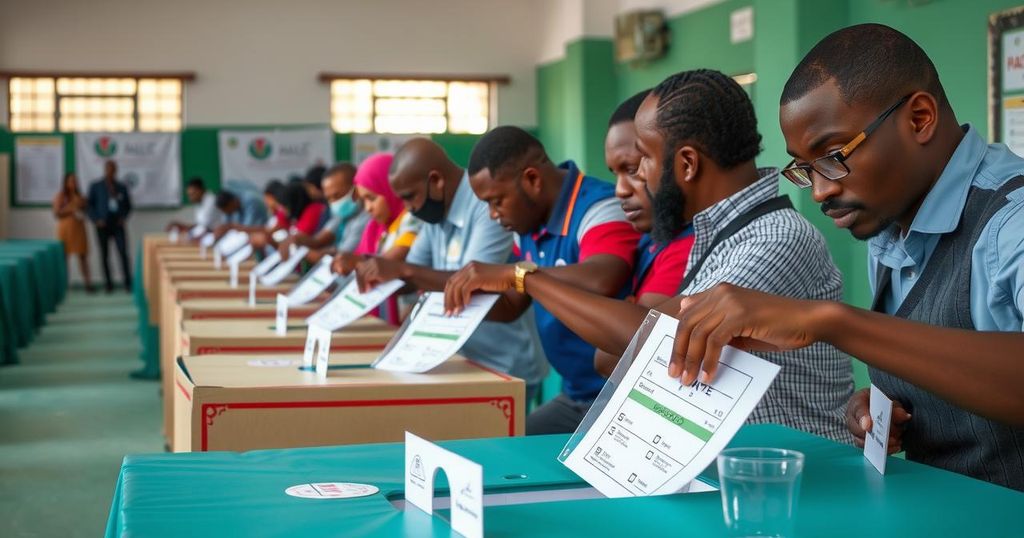Comoros Elections: Voters Prepare to Choose New Parliament Amidst Political Tensions

Voters in Comoros are set to elect a new parliament amidst allegations of past electoral irregularities. Approximately 338,000 registered voters will choose from nearly 100 candidates approved by the Supreme Court. President Azali Assoumani’s governance faces criticism for authoritarianism and nepotism, raising concerns about potential succession plans for his son. Opposition groups have polarized opinions on participating in the elections, with results anticipated by Friday.
On Sunday, voters in Comoros are exercising their democratic right to elect members of the 33-seat parliament in the Indian Ocean archipelago. This election occurs amidst allegations from the opposition concerning the legitimacy of the previous presidential elections held a year ago, which President Azali Assoumani won amid claims of irregularities. Despite these allegations, officials from the ruling party categorically denied any wrongdoing. Approximately 338,000 voters are registered to participate in this electoral process, which follows the last parliamentary elections conducted in January 2020.
The electoral landscape features nearly 100 candidates who were approved by the country’s Supreme Court, each vying for parliamentary positions. The political tension is palpable, as Assoumani’s opponents denounce his governance, claiming it reflects authoritarian tendencies. Furthermore, there is growing suspicion that Assoumani is grooming his eldest son, Nour El-Fath, to assume power following the conclusion of his current term in 2029. Since obtaining power via a coup in 1999, Assoumani has navigated through three subsequent elections, consolidating his control over the island nation.
In 2024, Assoumani conferred extensive new governmental responsibilities upon his son, which has intensified the opposition’s apprehensions. Several opposition factions, particularly the Juwa party led by former President Ahmed Abdallah Sambi, who is currently serving a life sentence, have advocated for a boycott of the elections. In contrast, others have opted to participate, viewing engagement as a means to highlight the flaws in the current regime. As articulated by Hamidou Karihila, an opposition candidate from the Hope of the Comoros party, “The Azali regime is weakened … by participating in these elections we are contributing to further exposing the flaws in its system and accelerating its inevitable fall.”
Election results are anticipated by Friday, underscoring the heightened political atmosphere surrounding this crucial electoral event in Comoros.
The elections in Comoros represent a critical moment in the nation’s political evolution, particularly following a contentious presidential election that raised questions regarding electoral integrity and governance. President Azali Assoumani has held power for a substantial period, and his administration has faced accusations of autocratic rule and nepotism. The involvement of political figures such as Ahmed Abdallah Sambi highlights the challenges faced by opposition parties in a landscape dominated by the ruling party. The electoral process not only engages citizens but also reflects the prevailing political dynamics within the archipelago, marking significant developments in its governance.
The parliamentary elections in Comoros serve as a pivotal moment for the country’s political landscape, providing insight into the challenges faced by both the ruling regime and the opposition. Voter participation amidst calls for boycotts underscores the political engagement of the populace, while the allegations of past electoral malpractices continue to overshadow the legitimacy of the electoral process. The results expected by Friday will be crucial in determining the future direction of governance in the archipelago, especially as tensions between the ruling authorities and opposition factions remain high.
Original Source: www.singletonargus.com.au






